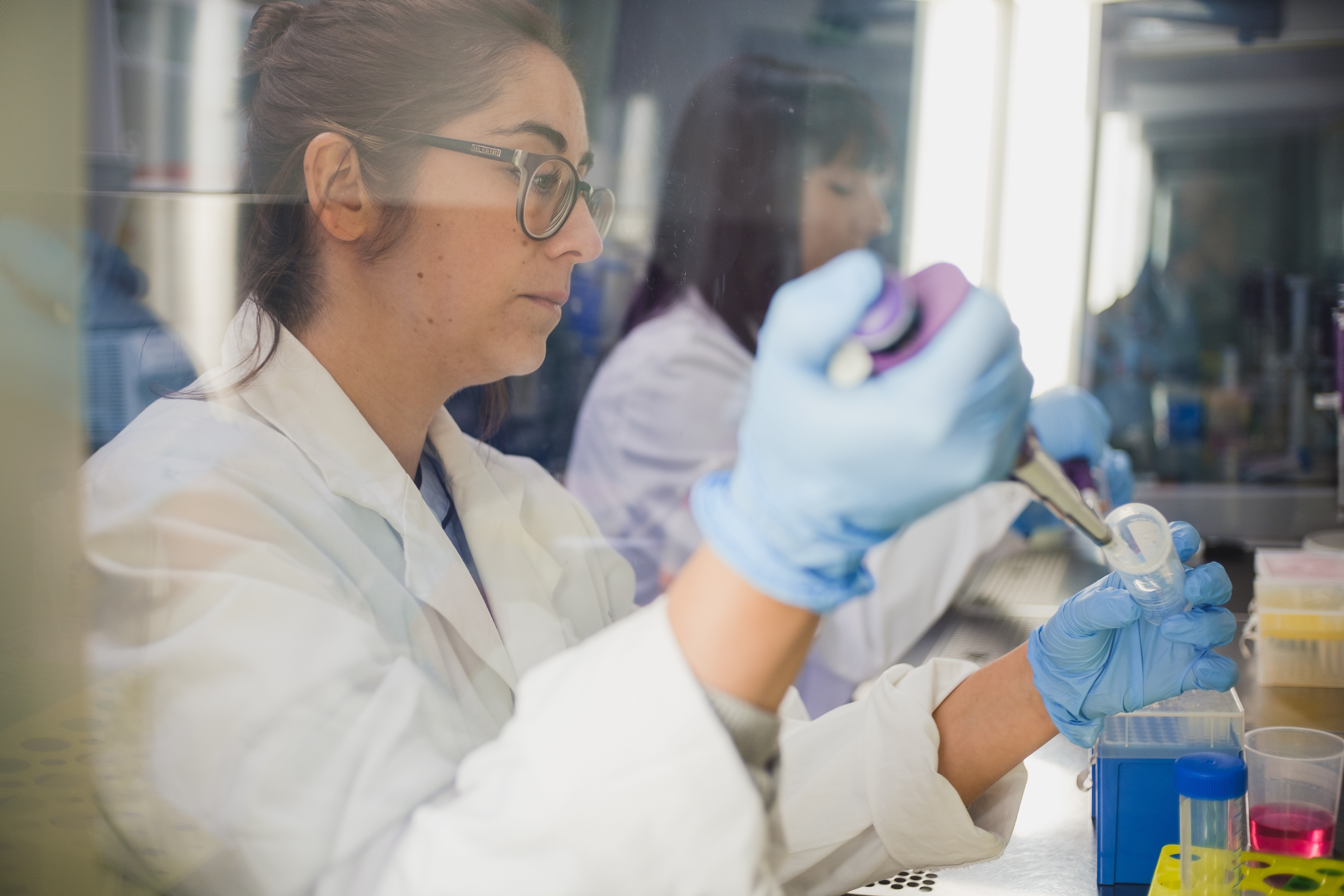Today, organ-like systems can already be printed layer by layer using a 3D printer. However, many of these cells do not survive because of the stress the cells are exposed to by the printing process.
For this reason, a science team led by Professor Monika Saumer from the Department of Computer Science and Microsystems Engineering at the University of Kaiserslautern together with nine other research groups has developed a new cell-friendly method in which the cell growth is specifically influenced by magnetic and electric fields.
Using a microchip, they develop electric fields of different strength acting on the cells. Due to the fact that this also occurs naturally in the body, it will be simulated. The aim is to evoke, that the nerve and muscle cells or their progenitor cells used in the microchip will be histologically correctly oriented to become a functional tissue growth unit, according to Professor Saumer in a recent press release.

The cells are prepared in the laboratory. Photo: HSKL/Lukas Mohr
Finally, a functional piece of the intestine will be created that can be used for drug tests or to do research into the effects of nutrients. Animal experiments should be reduced or even replaced.
The researchers received for their project entitled "Tissue engineering of tissues in complex hydrogels by means of three-dimensional electrical and magnetic stimulation" funding of the Carl-Zeiss-Foundation in the amount of 1 million euros.
Source and further information:
https://www.hs-kl.de/hochschule/projekte-und-menschen/pm-2020-01-13-kuenstlicher-darm-soll-tierversuche-eingrenzen




 Dr. rer. nat.
Dr. rer. nat. Menschen für Tierrechte - Tierversuchsgegner Rheinland-Pfalz e.V.
Menschen für Tierrechte - Tierversuchsgegner Rheinland-Pfalz e.V.